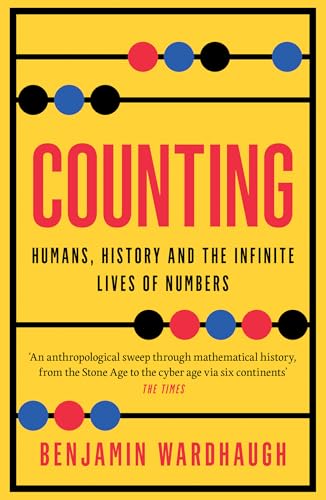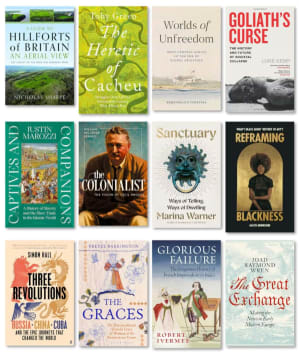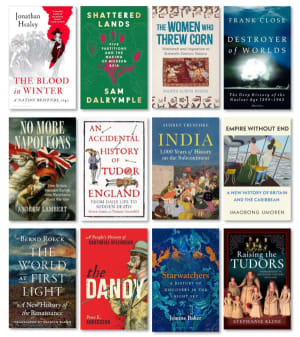Do you really understand the number 13? Or the number 24? I would argue - and Benjamin Wardhaugh, author of Counting: Humans, History and the Infinite Lives of Numbers might cautiously back me up here - that you don’t. Not really. Let me demonstrate. Have a look at this:
🟡🟡🟡🟡🟡🟡🟡🟡
🟡🟡🟡🟡🟡🟡🟡
And:
🟡🟡🟡🟡🟡🟡🟡🟡🟡
🟡🟡🟡🟡🟡🟡🟡🟡🟡
🟡🟡🟡🟡🟡🟡🟡🟡🟡
All you see is a bunch of circles. The only way you can appreciate their numbers (the first group contains 13 did and the second 24) is by laboriously counting them.1 In fact this appears to be the case for any number larger than four. Let’s give it a try:
🟡🟡🟡🟡
Or:
🟡🟡
🟡
If you are like the vast majority of internet using humans you will immediately see the number of dots without needing to count. One last experiment:
🟡🟡🟡🟡🟡
Most people, me included, don’t see the quantity six in the dots above (or is it five?). Instead they have to count the dots, or mentally split them into two groups of dots with quantities small enough to see at a glance.
Because humans have often had to deal with quantities larger than four, counting is a very common mental technique with an incredibly long history to allow us to accurately associate a number with a quantity. Counting is not a universal behaviour however, and Wardhaugh illustrates this with the example of the Pirahá people who live in South America.
Choosing not to count
The Pirahá people appear to have no counting at all - even the “one, two, many” system they were originally thought to have has been shown to be mistaken as the number “two” can mean different quantities in different contexts.
Outside traders coming to the Pirahá report:
Someone can ask for an entire roll of hard tobacco in exchange for a small sack of nuts or a small piece of tobacco for a large sack
The linguistic evidence, Wardhaugh tells us, indicates that the ancestors of the Pirahá did have counting words but that this ability was lost or forgotten through the generations.
Over counting
At the other end of the counting spectrum we have the apparently true story of 19th century American Ernest Thompson Seton2.
When Ernest reached the age of 21, his father presented him with a bill for $537.50: everything that he had spent on raising him up until that point, starting with the doctor’s fee for delivering baby Ernest. Ernest got a job, worked hard for a few years, gave his father the exact amount that he had asked for, and never spoke to him again.
Optimising counting
My reflection on comparing these two situations is that counting can confer an advantage: making sure you are getting an even share of a bag of sweets for example. But equally, counting can be a disadvantage. A consuming obsession with getting what you are ‘owed’, such as with Daddy Seton, can limit your ability to engage in cooperative behaviour (no-one likes a d***head).
An obsessive bean counter might be so concerned about being cheated that they neglect to go out and get the beans in the first place.
Maybe - and this is just my own hypothesis - not counting among the Pirahá became an evolutionary strategy (cultural evolution?) to promote co-operation and prevent miserly behaviour.
Greater than the sum of its parts - what’s in the book?
By surveying the range of human counting from its earliest evidence (stencilled fingers on cave walls) to its many later branchings, Wardhaugh invites these sorts of musings. The seemingly mundane activity of counting, it turns out, is hugely varied and can offer unexpected insights into humanity.
The counting stories that stuck with me were:
- The ancient Athenian Kleroterion, used to count out a certain number of randomly selected citizens, for jury service and whatnot.
- Medieval counting boards, ubiquitous in Europe until the seventeenth century, at which point people started writing down their sums on paper.
- Yup'ik counting sticks from the Arctic, which seem to have been used to keep track of scores in games.
- The wide variation in Australian counting systems, for example using bases 2, 3, 4 or 5 (compared to our base 10).
- Chinese counting sticks, essential for adding up large amounts of taxes and used until the Qing dynasty (1645).
- The east Asian (mainly Japanese I think) ‘mental abacus’ which seems to be as effective and perhaps even faster than the real thing.
Lots of interesting examples of humans outsourcing brain power to the external environment!
No Maths required
One thing this book is not about is maths. Before starting I was expecting talk of the number line, maybe imaginary / complex numbers, and orders of infinity. But there is none of that. There is a passing mention of zero but that’s about as technical as it gets. So if the sight of an equation makes you recoil in horror you are safe.
What is it like to read?
Easy going! Chapters are short, new topics keep coming and the writing is spare but focused. Anecdotes and human interest stories are scattered throughout.
The author has also clearly taken care over accuracy, but without over sharing on the minutiae.
The only bit when I felt myself getting bogged down was in the description of the Kleroterion (the ancient Athenian lottery machine for selecting citizens, mentioned above). But otherwise after having read this book I now consider myself an expert on all other counting topics3.
Conclusion
While I still don’t understand numbers larger than four, I do now have a good handle on the different ways of keeping track of them.
Overall this is a strong recommend, even if you are not a ‘numbers person’ - as long as you are not a member of the Pirahá tribe, you can count on a good read.
I tricked you with the number of dots to make my point :-) ↩︎
The story of Ernest Thompson Seton is not in the book, but I like it. ↩︎
I then watched this video on a modern recreation of a Kleroterion and I now consider myself an expert on this too. ↩︎
Book details
(back to top)- Title -
Counting : Humans, History and the Infinite Lives of Numbers
- Author -
Benjamin Wardhaugh
- Publication date -
July 2024
- Publisher -
William Collins
- Pages -
384
- ISBN 13 -
9780008436469
- Amazon UK -
- Amazon US -



